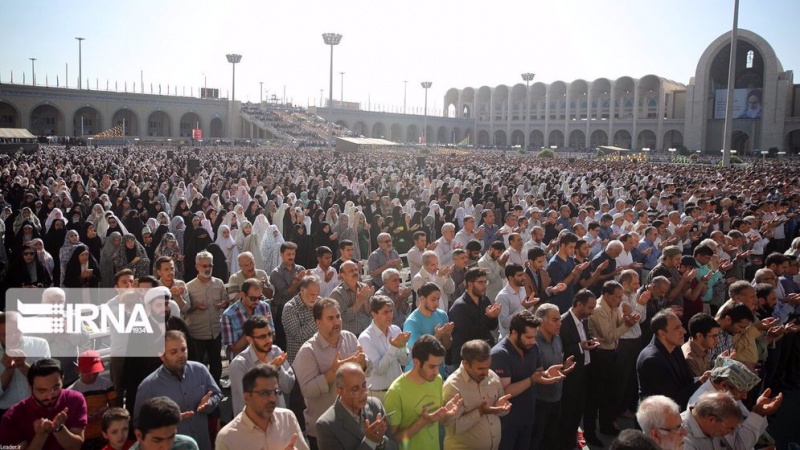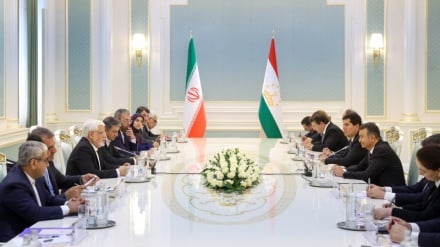Muslims in Iran, other countries celebrate Eid al-Fitr, mark end of fasting month of Ramadhan
Muslims in Iran and many other countries are celebrating Eid al-Fitr at the end of the holy fasting month of Ramadhan, after the new moon of the lunar month of Shawwal was sighted the previous night.
Naqareh drums were played at the holy shrine of Imam Reza (PBUH), the eighth Shias' Imam, in Iran's northeastern city of Mashhad on Saturday morning, and Muslim worshippers who had fasted for a month took part in Eid prayers there and across the country early in the morning of the occasion of the festive event, which marks the end of Ramadhan – the holiest month in the Islamic calendar.
In the capital, Tehran, people gathered at the Imam Khomeini Mosalla (congregational prayers site) to perform Eid al-Fitr prayers. Leader of the Islamic Revolution Ayatollah Seyed Ali Khamenei led the prayers.
More than a dozen Muslim countries, including Saudi Arabia, Qatar, Kuwait, the United Arab Emirates, Yemen, Palestine, Syria, and Egypt, announced that Friday marks the beginning of the holy occasion.
Along with Iran, Oman, Pakistan, Indonesia, Malaysia as well as Iraq are celebrating Eid al-Fitr on Saturday.
Eid al-Fitr is an important religious holiday celebrated by Muslims around the world. It marks the conclusion of the 29 or 30 days of dawn-to-sunset fasting during the entire month of Ramadhan.
The occasion falls on the first day of the 10th lunar calendar month of Shawwal, the start of which varies based on the sighting of the new moon by local religious authorities.
Eid al-Fitr has a particular Salat (Islamic prayer) which is generally offered in an open field or a large hall with congregation in attendance.
Muslims believe that they are commanded by God, as mentioned in the holy Quran, to continue their fast until the last day of Ramadhan and pay the Zakat al-Fitr – a ritual offering – before offering the Eid prayers.
ME


